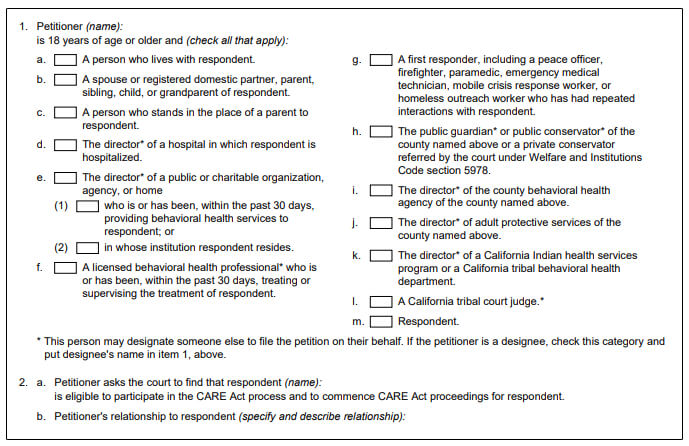
California’s mental health system has been overhauled. What impact will this have on property owners when there are mentally ill people in their midst?
Whenever there is mental illness, addiction, and crime, it will inevitably spill into and around properties and so although we practice landlord-tenant law, these societal issues are entwined.
Several merchants in San Francisco’s historic Mint Plaza have expressed their horror stories and are groping for solutions in an ongoing email thread in which we were included. Like encampments happening every night on a restaurant’s patio, and another restaurant losing a buyout deal because of the heavy drug use.
We heard of employees clearing their morning schedules to go around Jessie Street with gloves, trash pickers, and buckets to clear debris, noting that they were able to collect a lot of trash but needles, and feces had to be reported to 311. Meanwhile, Mark Mazza, the Tenderloin Street Manager, says he is hamstrung. While acknowledging the frustration of businesses, Mazza says his resources are limited.
We struck a nerve on social media after posting a visual account of the problem.
Passed in 2022, the Community Assistance, Recovery, and Empowerment (CARE) Act provides community-based behavioral health services and support to Californians living with untreated schizophrenia, addiction, and other psychotic disorders through a new civil court process. It expands the definition of "gravely disabled" to include people unable to provide basic necessities for themselves such as food and shelter due to an untreated mental illness or unhealthy drug and alcohol use.
Importantly, San Francisco was required to implement the CARE Act by October 1, 2023, with other locales to follow at a later date.
For some, this transformation represents a long-overdue humanitarian response, but for civil rights activists, it is coercion and an assault on civil liberties, with one critic saying, it’s a “pipeline to conservatorship, the greatest deprivation of civil liberties short of the death penalty.”
For Governor Newsom, though, detractors have no argument to defend California’s current handling of the crisis.


Change has its enemies. I get it. But one thing you cannot argue for — with all due respect to all the critics out there — is the status quo. You can’t. And in the absence of alternatives, what the hell are we going to do to address this crisis?
~ Governor Gavin Newsom in a 60 Minutes interview
San Francisco's CARE Court
The court’s stated goal is to build safe and trusting relationships and create individualized treatment plans to improve health and wellness. The court points out that the objective is not - as some fear - to institutionalize participants or force them to take their medication.
San Franciso’s CARE Court has specialized forms and a choreographed process, with The Honorable Michael Bergert tasked with presiding over these cases.
Learn more about the mechanisms put into place »
Can landlords petition the CARE Court?
The short answer is yes. When we looked at the language of the law, the petitioner could be anyone "familiar" with the respondent, but there was no box to check for a landlord or their agent. The closest match is someone who lives with the respondent. Family members, first responders, and Adult Protection Services, among other professionals, can also initiate the process.

To resolve this quandary, we reached out to Melanie Kushnir-Pappalardo, the Director of Collaborative Justice Programs for San Francisco's Superior Court. She confirmed that anyone familiar with the respondent may file the action and a landlord would certainly qualify as being familiarized with the tenant.
Our preliminary take on the CARE Act
There are many family members who have felt helpless, watching their loved ones succumb to their demons and unable to do anything about it. The CARE Act now allows them to intervene with tough love by petitioning civil courts, and while this is not a panacea, this is a valuable new tool in the toolbox reserved for the most serious of cases.
For those in the judiciary and the mental health profession, we will take their word at face value that the goal is to facilitate getting people the help they need, become assimilated into a stable housing community, and lead productive lives with support. We trust that the goal is not to force involuntary treatment against their will.
![]()
If someone is institutionalized – they haven’t given up their tenancy – you still need to deal with it – just like if someone is imprisoned, their tenancy remains until you sever it, either through an eviction, an abandonment, or a voluntary surrender agreement.
~ Daniel Bornstein
A refresher on nuisances often committed by tenants who have a mental illness
Whenever there are nuisances that infringe on the quiet enjoyment of other residents, we have to determine the degree of seriousness.
Is the tenant physically accosting other people, breaking windows, committing arson, or engaging in other behavior that is so egregious that it cannot be remedied? If so, it is a clear-cut case that he or she has to be transitioned out of the unit with a 3-day Notice to Quit because the conduct cannot be cured. Our office has been aggressive in this regard and while the tenant’s attorney may argue that since their client has a disability, he or she is entitled to a “reasonable accommodation” required under an alphabet soup of fair housing laws. For example, the tenant’s legal counsel may request time for their client to get stabilized on new medication.
Our counternarrative is that the tenancy must end because there is a foreseeable threat to others in the building.
Contrast that with annoying or odd behavior that may be disturbing to other residents, but can be corrected through a reasonable accommodation. For example, a tenant sings at all hours of the night - in that case, perhaps the landlord can add more insulation to muffle the sound.

Hoarding is another vexing problem for housing providers and has been classified as a mental illness. Oftentimes, we will receive a letter from the tenant’s attorney requesting a reasonable accommodation such as extra time to remove items, enlist the help of a cleaning service, meet with Adult Protective Services, and so forth. If the request is reasonable, our office will grant the accommodation, but our hard-won experience has shown us that hoarding has a high recidivism rate. We delve deeper into this topic here.
Having been injected in thousands of landlord-tenant disputes, we have a good feel for how serious the transgression is and whether the underlying behavior can be accommodated, or not.
Parting thoughts
Bornstein Law has become well-acclimated to dealing with all manner of dysfunction and depravity in rental units. Some of the conduct we have seen could shock the conscious, and much of it can be traced to a mental illness. Handling this is difficult and requires a special skill set.
We are not a law firm that will retreat into the law library and file a beautiful appellate brief. Instead, we are in the trenches responding to nuisances of every kind. We do so with the goal of resolving the matter as quickly and as inexpensively as possible, taking into account time, risk, and attorneys’ fees.
